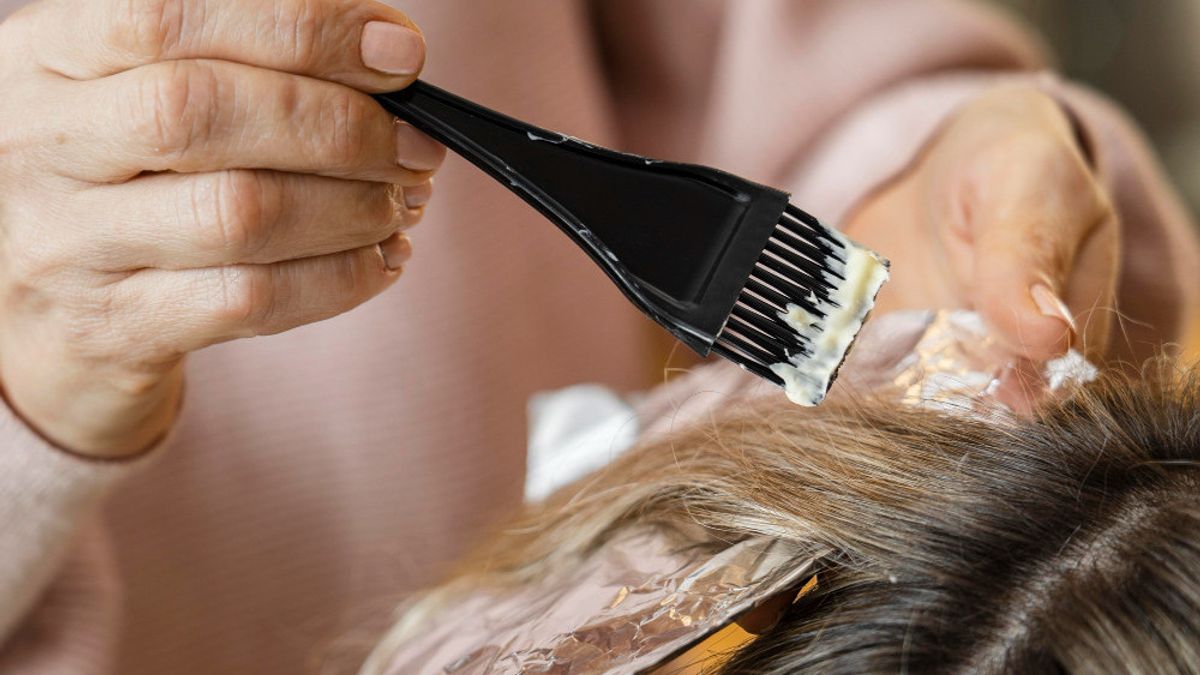YOGYAKARTA - How does the law color hair in Islam? Muslims, both men and women, are allowed to change or color their hair, but certain colors are prohibited. Therefore, you need to know the color of hair that is prohibited in Islam.
Some people like to change their hair color with paint or other colors to look attractive. There are also those who spray their hair to cover their gray hair or white hair. Maintaining hair is a natural thing to do. Even Islamic teachings also recommend maintaining cleanliness and personal care, including hair.
Dinarikatkan Abu Hurairah, Rasulullah SAW mengingatkan umat Islam untuk selalu merawat rambutnya, sebagaimana sabdanya:
Let's take care of it, let's take care of it, let's take care of it, let's take care of it.
Meaning: "Whoever has hair, should he glorify it." (HR Abu Dawud).
However, there is hair color that is prohibited in Islam. A Muslim is not recommended to color or dye his hair in black.
When you want to color your hair, Muslims are not advised to avoid black. Black color should not be used as hair paint, even to cover gray hair or hair that has turned white.
This teaching, as the Prophet SAW once said to his friend, who has gray hair. This is according to the Muslim History Hadith:
You can't help it, you can't help it, you can't help it, you can't help it, you can't help it, you can't help it, don't worry about it, don't worry about it, don't worry about it, don't worry about it, don't worry about it, don't worry about it, don't worry about it, don't worry about it.
Meaning: "Change this gray with something, but avoid black."
From these hadiths, Rasulullah allowed his people to color their hair to cover their gray hair. However, coloring or miring should not be used in black paint or ink.
This is like what the Prophet's friends, Abu Bakar and Umar bin Khattab did. They once colored their hair with leaf on their girlfriend or inai and catam leaves as leaves that fertilized their hair.
Inai or pacar leaves are often used as hair and nail dyes. These leaves have natural properties that can produce reddish to brown yellow colors. These colors are allowed to dye or paint hair.
There are several opinions from ulama who recommend to avoid black color for hair hair. So what is the reason in Islam not to mirre or paint hair in black?
In the hadith narrated by Ibnu Abbas, Rasulullah SAW said, "At the end of the day there will be people who color their hair with black colors such as doves, they will not smell heaven." (HR. Abu Daud, An-Nasa'i, Musnad Ahmad, and Shohih Bukhori).
Referring to these hadiths, it can be interpreted that it is not allowed to mix or paint hair with black. Apart from being judged to change the nature and nature of Allah's creation, coloring hair with black is prohibited from preventing fraud or age forgery.
SEE ALSO:
Combing or coloring hair with black color can be included in the category of great sin. In the hadith of Ibnu Abbas RA, Rasulullah SAW once said:
Why don't you think about it? Let it be, let it be, let it be, let it be, let it be, let it be, let it be, let it be, let it be, let it be, let it be, let it be, let it be.
Meaning: "At the end of the day there will be a people who blend with black colors such as pigeons. They will not smell heaven." (HR Abu Daud).
In the book Fiqih Manhaji, Sheikh Musthafa al-Khin explains the wisdom of being forbidden to color or dye his hair in black. According to him, pinning his hair with black color is included in the act of fraud. In addition, this action also has elements of changing the creation of Allah SWT.
Demikianlah penjelasan warna rambut yang dilarang dalam Islam. Rasulullah SAW menghastik umat Islam untuk tidak menyemir rambutnya dengan warna hitam. Sementara mewarti rambut dengan warna lainnya masih diperbolehkan. Baca juga
Stay up to date with the latest domestic and other overseas news on VOI. We present the latest and updated information nationally and internationally.
The English, Chinese, Japanese, Arabic, and French versions are automatically generated by the AI. So there may still be inaccuracies in translating, please always see Indonesian as our main language. (system supported by DigitalSiber.id)

















